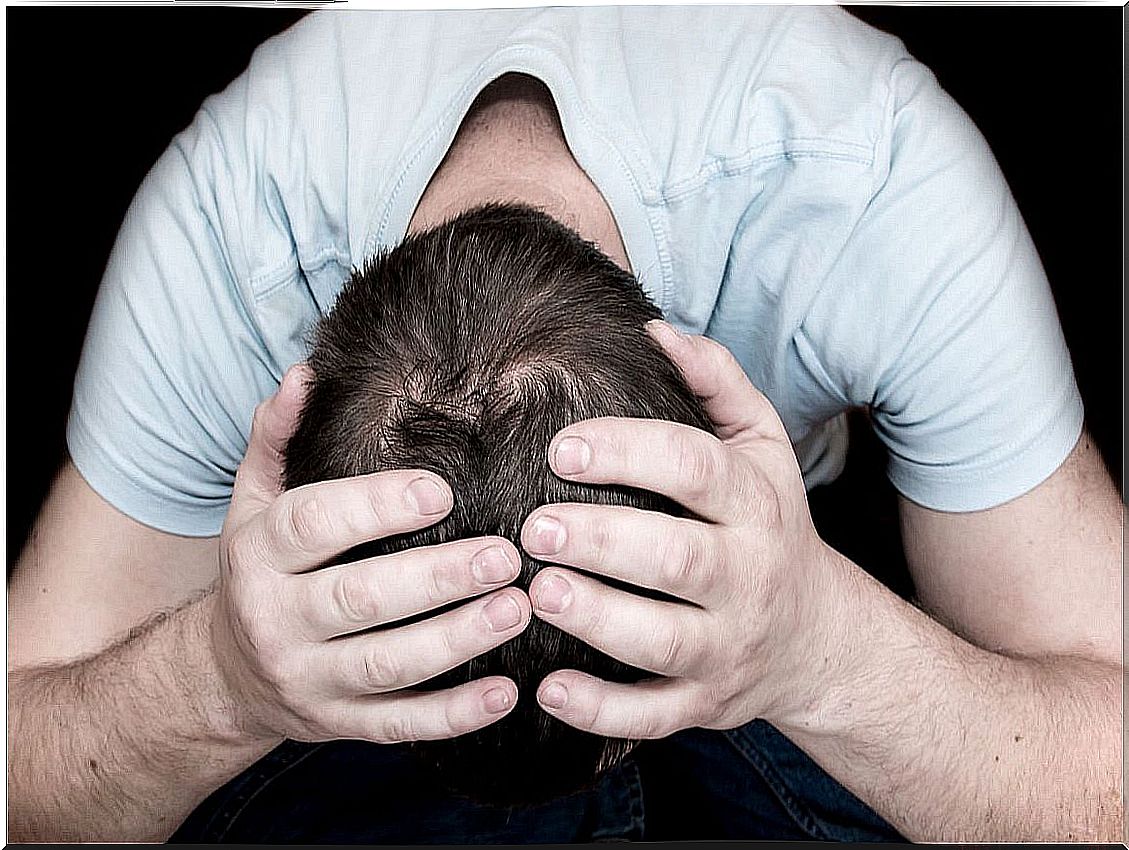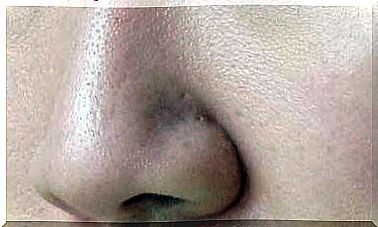Mental Collapse: When The Body And Mind Reach The Limit
Reach the limit of our strength; not being able to with anything. Feeling that all the weight of the world falls on our shoulders or that it is already difficult to think, remember and make decisions. Experiencing all of this is what happens when we suffer a mental breakdown, a state whose origin is in intense stress maintained over time.
Physical and emotional exhaustion is a constant at the present time. We not only feel more pressure in the workplace. Moreover, if there is something evident, it is that the ball of worries is getting bigger and, in turn, our mood is weaker. Therefore, we are subjected to a debilitating psychological state that, later, will cause health effects.
Pablo Neruda used to say that sometimes we even get tired of being people. Perhaps it is true, because the human being is integrated into increasingly complex and demanding scenarios that later take their toll. And while it is common to feel blocked and collapsed, it is necessary to know why this originates to learn how to handle it.
Mental breakdown: what is it and what symptoms does it present?
Mental breakdown is not a disorder by itself, nor is it a diagnosable clinical entity. We are facing a symptom caused by a state of intense stress. In this way, it occurs in the face of adverse experiences, such as after receiving bad news, experiencing traumatic events, going through emotional breakdowns, and so on.
In other words, it is a psychological reality that occurs after a highly emotionally charged experience. As a study carried out by the University of Leipzig in Germany puts it, “mental breakdown is related to high stress, and its main consequence is the feeling of physical and psychological exhaustion.”
In these states, an excess of neurochemicals is released, such as adrenaline or cortisol, which can lead to a situation of overload. This accumulation of emotions, sensations and psychophysiological alterations end up affecting our cognitive performance (thoughts) and our physical resistance.

Symptoms associated with mental breakdown
Some call a nervous breakdown, but it is not really the same. While in the second there is usually an externalization of the symptoms and a manifestation of overwhelm, emotional intensity and nervousness, in the first what we see basically is a blockage. Next, we dig a little deeper.
Psychological symptoms
- Trouble focusing attention.
- Difficulty reasoning, the person perceives a kind of mental haze.
- Memory failures.
- Feeling of unreality, as if what surrounded him was not entirely real.
- Mood swings appear, but it is especially common to feel irritability or listlessness.
- Not being able to carry out daily tasks normally. The motivation, the desire, the power to focus on what is being done is lacking.
Physical symptoms
The physical symptoms associated with mental breakdown are multiple. However, its intensity will be greater the longer we have been experiencing stress. On average, the associated manifestations are as follows:
- Constant exhaustion, feeling of not being able to react to things even if we try.
- Muscle pain, especially in the extremities.
- Sleep disturbances appear (we can suffer insomnia or, on the other hand, sleep excessively).
- Also, pressure in the chest or tachycardias may appear.
- Dizziness
- Headaches
- Sensation that we are moving more slowly than normal.
How can we handle mental breakdowns?
Is there a treatment for mental breakdowns? There really isn’t one. These psychological conditions necessitate a multidimensional coping strategy. We therefore analyze some of those keys.
Stress inoculation technique
This approach is based on the Lazarus and Folkman stress coping model. It consists of applying a series of tools that will aim to inoculate stress little by little. To do this, we must develop a series of skills whose objective is to create new healthy thought patterns and, in turn, reduce anxious emotions.
The steps cover the following:
- Cognitive restructuring: identifying negative and obsessive thoughts, and replacing them with healthier ones.
- Apply relaxation strategies, such as deep breathing.
- Initiate new changes in our routines to manage that stress. We can ask ourselves what changes we need to feel better. Sometimes, well-being is achieved by moving away from certain situations and starting new projects.
- Learn proper emotional management techniques.

Troubleshooting techniques
This data is interesting: much of the origin of mental breakdowns comes from the excess of problems that we do not face . Almost without knowing how, one thing mixes with the other; we don’t know what to do with some and, after a while, everything accumulates.
After this, overwhelm, overload and blockage appear. In these common situations, it is appropriate to learn a series of skills. Here are some steps.
- Identify the problem and describe it.
- Divide it into smaller parts. After all, every concern or challenge is made up of multiple units.
- Clarify what we want to achieve.
- Take a sheet of paper and come up with solutions. We cannot stay with only one, the ideal thing is to write down several strategies.
- Apply the solutions.
- Assessing it, has it given us the expected result?
- Manage the emotions involved in each stage.
We can cope with mental breakdowns
We must bear in mind that, in times of crisis and uncertainties, it is very common to suffer mental breakdowns. Taking time, attending to our needs and including adequate stress coping techniques can help us.
Of course, if we cannot manage it, it is best to seek professional help. A consultation with a professional psychologist is key when it comes to knowing other strategies to control this problem.









